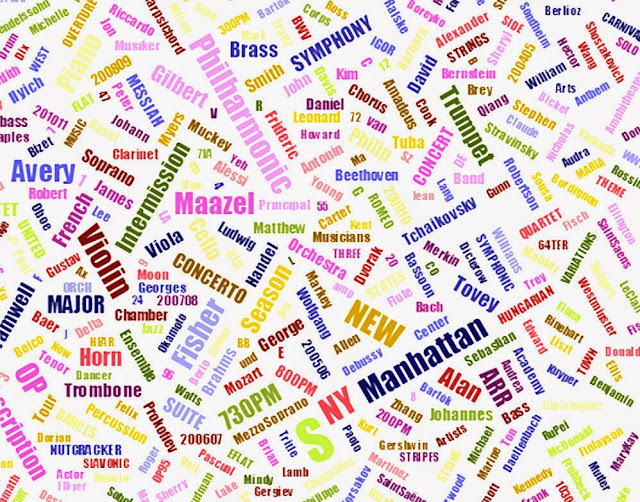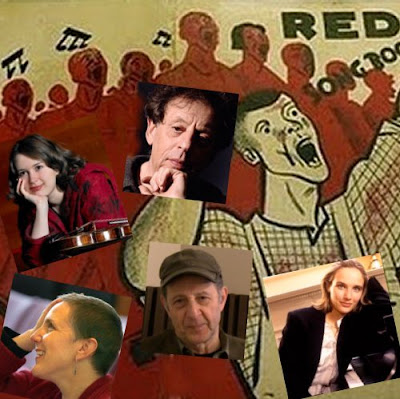If you will build it he will come

Doris Salcedo's new installation Shibboleth (above) at the Tate Modern looks set to become contemporary art's 4' 33". There is huge media coverage and massive interest from people who don't normally 'do' modern art. The only question is how long will the queues be?
Isn't there a lesson for contemporary music?
The installation doesn't have a cheesy introductory talk. It isn't surrounded by gilt framed Old Masters to soften the shock. The creator is the wrong side of 40. It isn't tucked away in a ghetto space. There are no worries about letters of complaint. It didn't need blogs to talk it up. It isn't even being given away free on the internet.
Doris Salcedo and Tate Modern built it. And the audience will come.
More interesting views on promoting contemporary music in today's Guardian letters. Picture credit Tate Modern. Before anyone shouts 'equality', the headline quote is from the 1989 film Field of Dreams, and is correct. It is often misquoted as 'If you will build it they will come'. Any copyrighted material on these pages is included as "fair use", for the purpose of study, review or critical analysis only, and will be removed at the request of copyright owner(s). Report broken links, missing images and other errors to - overgrownpath at hotmail dot co dot uk










Comments
The Tate is free and open 64 hours a week, giving patrons a chance to experience Shibboleth as many times as is convenient without accelerating personal bankruptcy.
Contemporary music often takes multiple listens to be fully experienced/understood/appreciated. So far, no one has come up with a solution that doesn't bankrupt the promoters and musicians.
I don't know the specific details, but I would imagine that the Tate's principal sources of funding are quite stable and not tied to intimately to income, so they can afford to try something risky. If no one comes, fine. They still have money to try something else the next time. Most classical music outfits do not have this luxury.
Our recent visit to La Centre National des Ecritures du Spectacles in France showed that contemporary music can be presented for free, if the funding structure is right.
I know that was France. But several grant/sponsorship funded projects that I have been involved with here in the UK recently have had their funding driven more by breadth of engagement in the whole creative process, rather than audience size in the conventional sense.
This is real 'blue sky' stuff. But I wonder if the balance between box office and grant/sponsorship revenue in contemporary music could not be swung towards grant/sponsorship sources if the doors were literally thrown open to hard-to-reach groups, and others, throughtout the whole creative process? - composing, rehearsing and performance.
Perhaps contemporary classical music has something to learn from Radiohead? Perhaps we should be looking for alternatives to the 'fixed payment per performance' model? How about asking audiences to contribute what they thought the concert was worth?
Just brain-storming ideas, and I do appreciate the importance of ticket revenues. But we must look outside the box (or into the crack?). Which is why I wrote this piece.
In Baltimore, a major $1 million grant from Pennsylvania's PNC Bank (which also operates in Maryland, the District of Columbia, and elsewhere), has allowed the Baltimore Symphony Orchestra to offer all tickets to its Baltimore-only concerts at a flat cost of $25. (There is still a tiered pricing structure for the BSO's weekly concerts at the new Strathmore concert hall in highly affluent Montgomery County just outside Washington, D.C.)
(Interestingly, Montgomery County has a skyrocketing number of lesser-affluent, largely recent immigrant, families who are not beneficiaries of the PNC/BSO financial patronage scheme for downtown Baltimore-alone.)